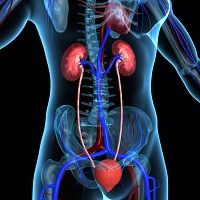Article
Aggressively Treat Post-Kidney Transplant Anemia
Author(s):
Renal transplant patients often develop anemia (up to 40% are anemic 1 year after transplant) and often, clinicians fail to treat anemia aggressively. Anemia has been correlated with increased hospitalizations and higher mortality

Renal transplant patients often develop anemia—up to 40% are anemic 1 year after transplant—and often, clinicians fail to treat anemia aggressively. Anemia has been correlated with increased hospitalizations and higher mortality. A team of researchers reports how anemia may predict cardiovascular morbidity in a study that appeared in an issue of Transplant Proceedings. They looked at specific cardiovascular morbidity (left ventricular [LV] hypertrophy and vascular stiffness) in kidney transplant (KT) recipients with post-transplantation anemia.
This study enrolled 150 KT recipients with an average age of 39 years. All had functioning grafts and underwent clinical and laboratory evaluations, carotid-femoral pulse-wave velocity (PWV; a measure of cardiac stiffness) and transthoracic echocardiography to assess LV systolic function. The researchers drew hemoglobin levels at 1, 6, 12 and 24 months after transplantation.
The researchers categorized patients into 2 groups. Group 1 patients had anemia, and Group 2 patients did not. KT patients in this study were much more likely to have anemia than those studied in recent publications. The authors indicate that surgical blood loses, delayed graft function, and low endogenous erythropoietin levels may have been to blame initially.
Group 1 patients were significantly more likely to have cardiac stiffness and increased LV mass indices than Group 2 patients. These patients were also more likely to have lower estimated glomerular filtration rates and LV systolic function. LV systolic function and LV mass index were predictors of post-transplantation hemoglobin levels—these patients were at elevated risk of anemia.
Dialysis duration before transplantation, low post-transplantation mean hemoglobin levels, higher proteinuria, higher PWV measurements, and lower EF were significantly associated with accelerated LV mass index.
This study, although small, demonstrated that post-transplantation anemia contributes to cardiovascular morbidity by deteriorating LV function and increasing cardiac stiffness. Correcting post-transplantation anemia early with erythropoietin and other appropriate measures may improve outcomes.





